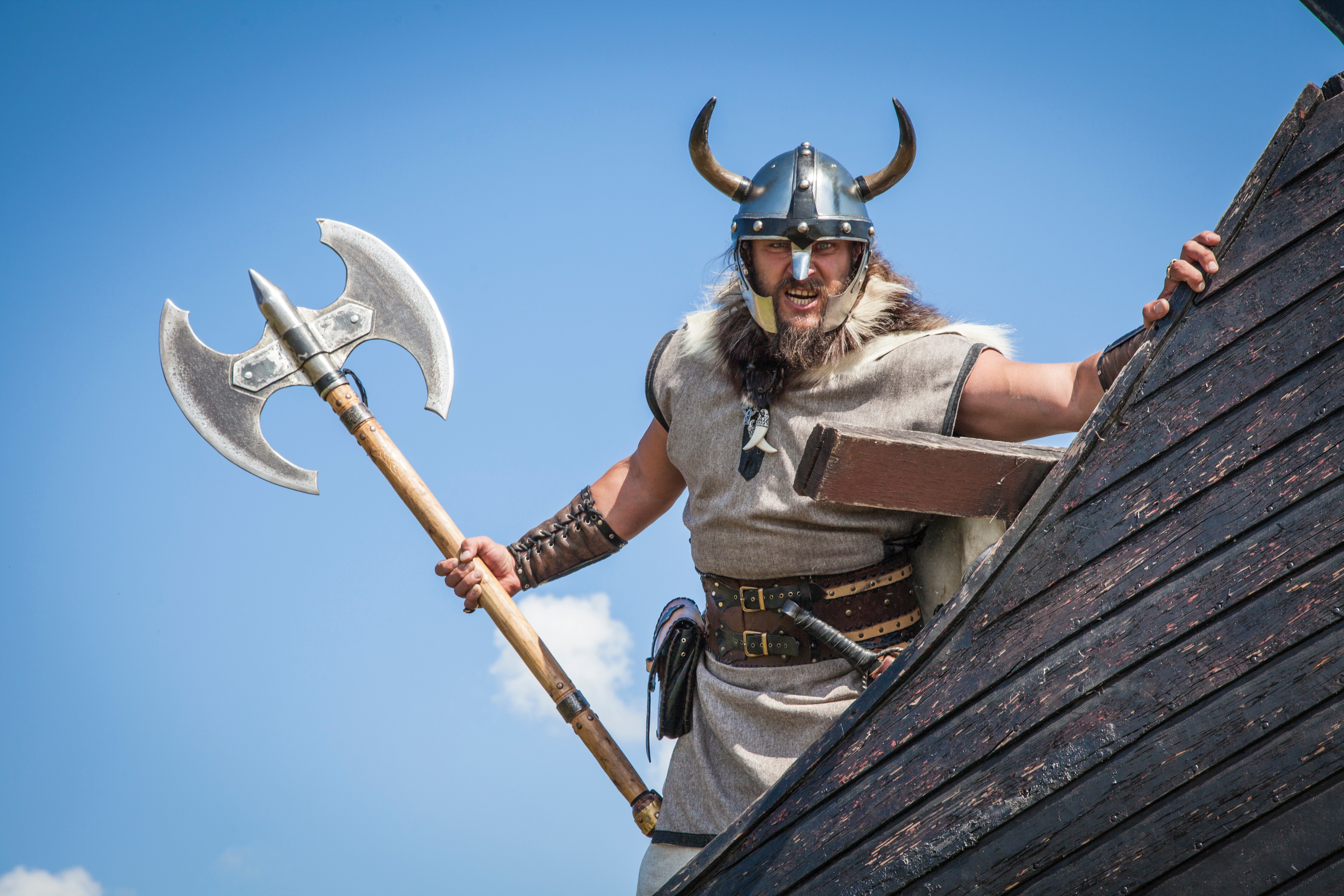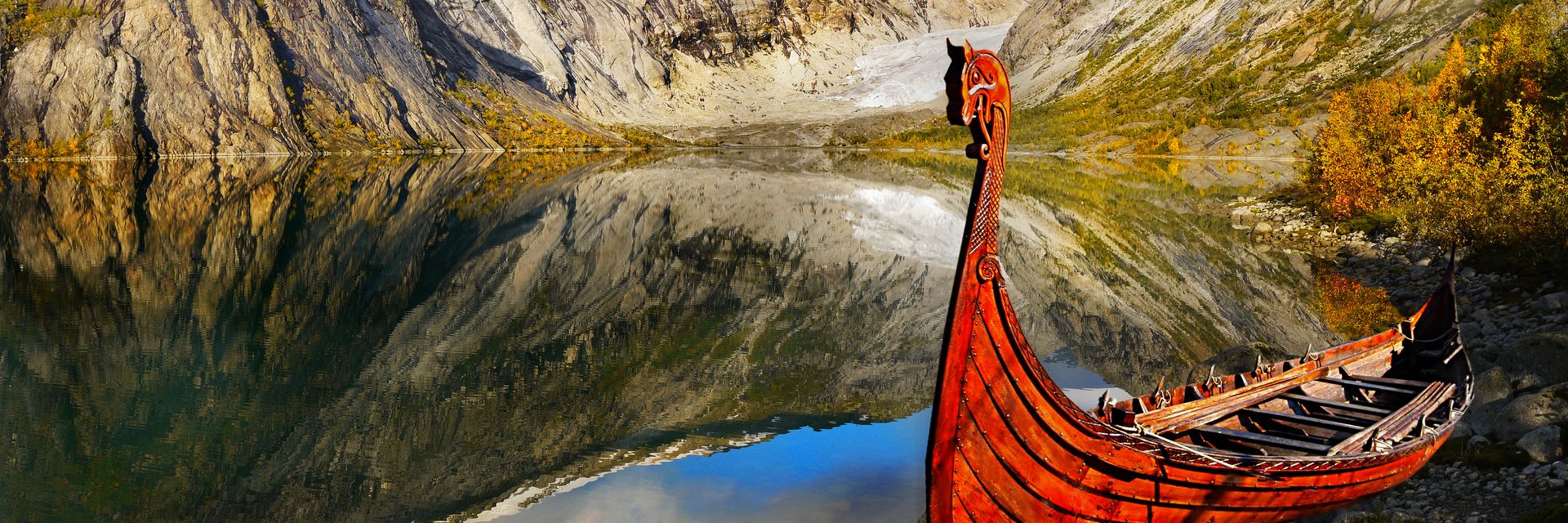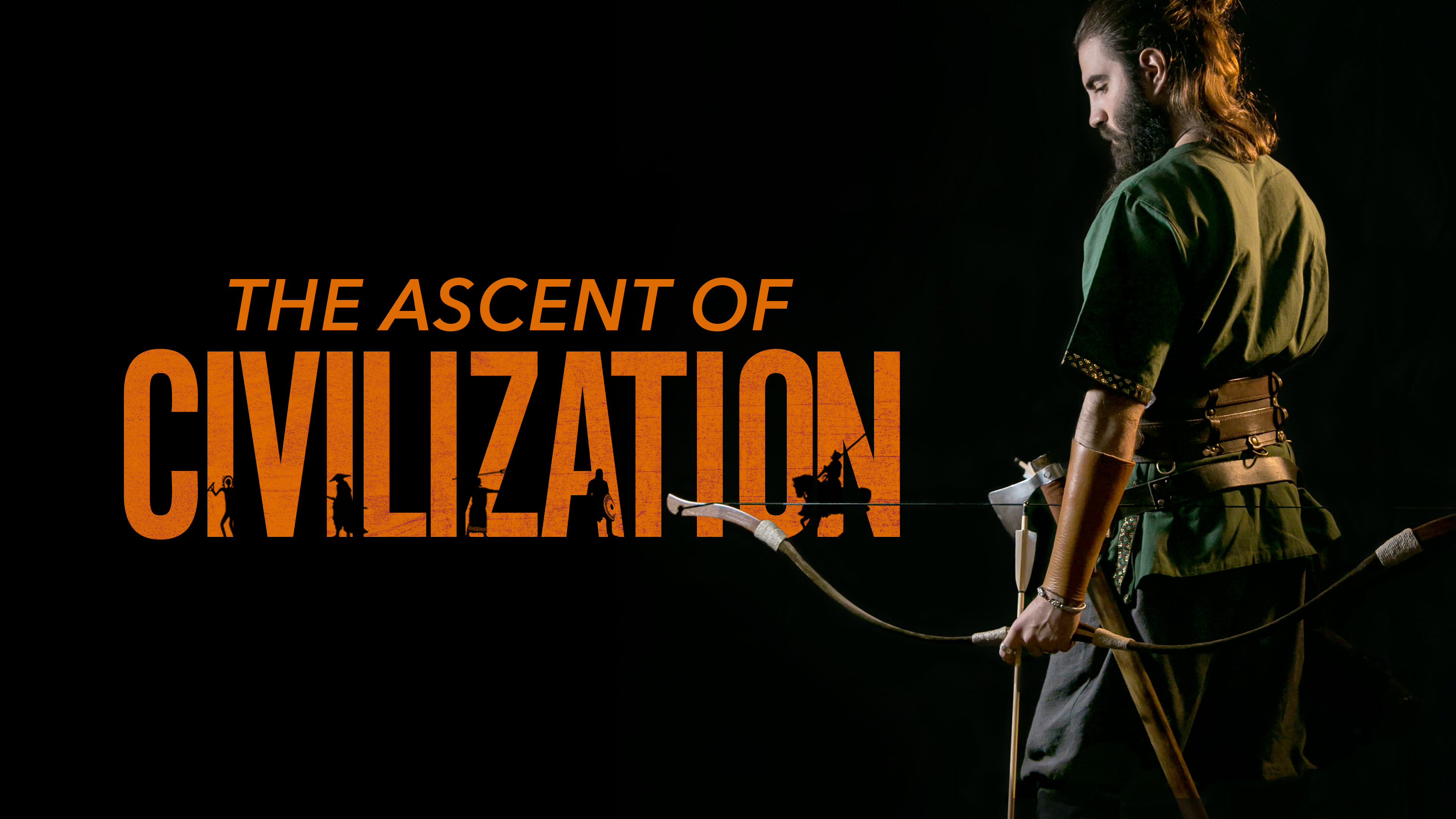The Vikings, known for their warrior skills and trade, left a cultural mark through mythology and exploration, highlighting their role as civilization builders.
◊
The Vikings, like the Greeks and Romans, stand as powerful symbols of civilization building. Often portrayed as fierce warriors, these Scandinavian seafarers were much more than that. The Viking Age, spanning from the late 8th century to the early 11th century, was a time of great exploration, conquest, and cultural influence. Let’s see how the Vikings played a significant role in shaping the world by delving into five key aspects of their history.
For more on the history of the Vikings, check out The Ascent of Civilization on MagellanTV.
1. Viking Raids and Conquests
Among the defining features of the Viking Age were the widespread raids and conquests they launched. They traversed vast distances, striking fear into the hearts of those they encountered. Viking expeditions and invasions extended from Europe to Asia, with settlements in the British Isles in places like Dublin and York.
2. Viking Trading and Commerce
The Vikings were also skilled traders and navigators. They revolutionized trading by establishing trade routes that connected Europe and Asia, allowing for the exchange of goods such as furs, amber, and slaves. Vikings also settled in key trading centers, including Kiev, which played a pivotal role in connecting the East with the West.
3. Viking Exploration and Discovery
Viking explorers ventured into uncharted territories and left an indelible mark on the map. Perhaps one of the most remarkable Viking expeditions was the discovery of North America, specifically Vinland (a settlement now called L’Anse aux Meadows, in Newfoundland), around the year 1000 CE, predating Columbus by nearly 500 years.

Image Source: Khosrork, from Adobe Stock
4. Major Norse Mythology and Sagas
The Vikings were not just warriors and traders; they were also storytellers. Their rich mythology and sagas have influenced literature and culture to this day. The Eddas (a collection of Norse mythological texts) and the sagas (epic narratives that chronicle Viking history) provide insights into the Viking belief system and their legendary heroes, including Thor, Odin, and Loki.
5. Viking Shipbuilding and Nautical Expertise
Viking ships, renowned for their seaworthiness, played a vital role in the success of Viking expeditions. The longship, characterized by its long, narrow design and shallow draft (i.e., the depth of a ship's hull below the waterline), allowed for both swiftness and long naval expeditions. The advanced ship technology of the Vikings was a critical factor in their achievements. It enabled the Vikings to navigate a wide variety of waterways, conduct successful raids, and explore distant lands.
Ω
Title Image source: Helena Bilkova, via Adobe Stock


